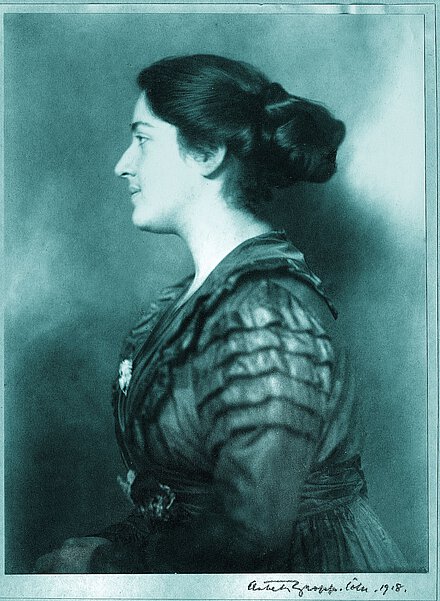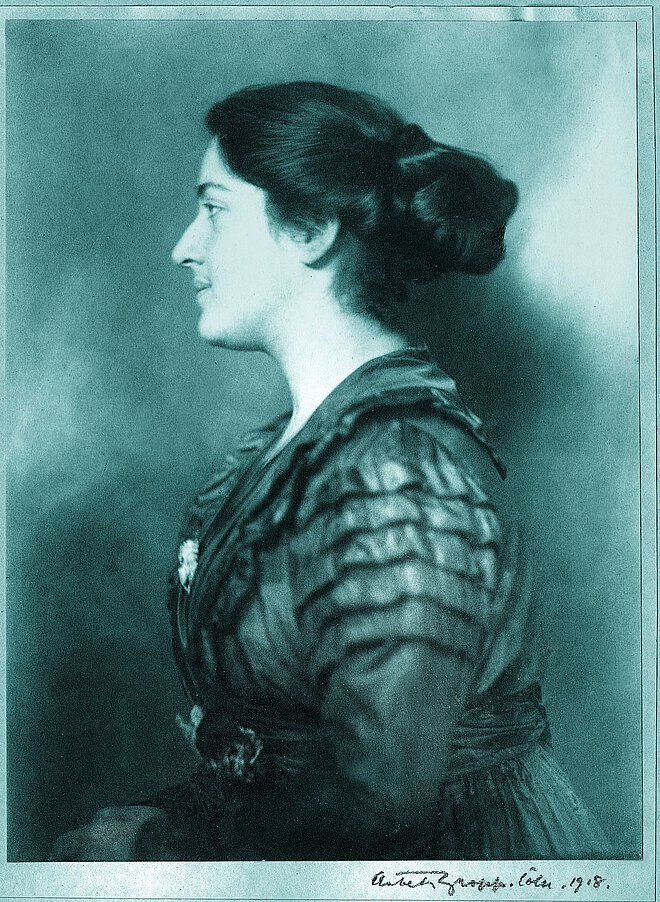Lilli Jahn
born 05.03.1900 Köln
ermordet 17./19..06.1944 Auschwitz (concentration camp)
Profession Doctor
Last place of residence Kassel
Biographie
Lilli Jahn grew up in Cologne. Her parents were businessman Josef Schlüchterer and his wife Paula. Between 1906 and 1913, Lilli Jahn attended the "Private Lyceum for Young Ladies" and the secondary school of the Kaiserin-Augusta-Schule in Cologne. Lilli Schlüchterer graduated and acquired her A levels in 1919 after which she began studying medicine. In 1924, she received her doctorate and practised medicine for the next two years at the "Israelite asylum for the sick and the weak with age” (Israelitisches Asyl für Kranke und Altersschwache) in Cologne. On 12 August 1926, she married the doctor Ernst Jahn (1900-1960), who was a Protestant, and set up a joint practice with him in Immenhausen in North Hesse. Lilli and Ernst Jahn had five children together.
After the National Socialists seized power, the Jahn family was increasingly ostracised due to Lilli's Jewish background. Lilli also considered emigrating like her sister Elsa, who went to England in 1933. However, since Ernst Jahn did not want to give up his practice, the family remained in Immenhausen. In the summer of 1939, Ernst Jahn hired Dr. Rita Schmidt as a doctor in his practice. A romantic relationship evolved from this initial work relationship. In May 1942, Rita Schmidt gave birth to their child. A few months later, Ernst Jahn divorced Lilli, resulting in her losing all protection against persecution. She was soon driven out of Immenhausen. In July 1943, she and her five children moved into an apartment in Kassel on Motzstraße 3. Here she used her business card as a provisional name plate for the doorbell. Since her business card still showed her doctor's title, which had officially been revoked due to her being Jewish, and the mandatory addition of "Sara" to her first name was also missing, Lilli Jahn was arrested by the Gestapo. On 3 September 1943, she was taken to the Breitenau "work education camp" (AEL). During her captivity in Breitenau, an impressive exchange of letters between Lilli and her children took place. These letters largely remain preserved. After seven months of imprisonment in Breitenau, during which she had to carry out forced labour, Lilli Jahn was brought to Auschwitz by collective transport in March 1944. It was here that she was murdered on 17 or 19 June 1944.
Gerhard Jahn, the Minister of Justice under Willy Brandt, was Lilli and Ernst Jahn's son. Although he had two trees planted in Yad Vashem in honour of his mother, he never publicly addressed his mother's fate. The life and persecution path of Lilli Jahn became more well-known with the publication of the book My wounded heart – The life of Lilli Jahn, 1900-1944. It was in this book that Martin Doerry, Lilli Jahn's grandson, published his grandmother's letters, including many of the letters she had written during her captivity in Breitenau. The book has since been translated into 20 languages.

